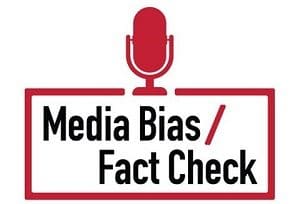By Richmond Shreve
Viral email messages, a stealth tool in political motivation, abound during political campaigns. I collect them as samples of propaganda because they are so blatant that they make good examples when I want to talk about critical thinking. The same propaganda techniques are widely used in popular media, especially MSN and Fox News — they are just more nuanced.
So in this post I wanted to deconstruct a viral email that is circulating among conservatives.  I have redacted the email names but othewise what you see is what I pulled from my gmail inbox.
I have redacted the email names but othewise what you see is what I pulled from my gmail inbox.
Click the image to view the actual PDF file. I have added notes which you can point to and read and I’ve highlighted certain words and phrases that triggered my skepticism.
My aim is to show readers how easy it is to spot inauthentic information, and deliberate dis-information if you train your eye.
The first thing you will notice about the item is the very large font and the use of red type. The sender uses all-caps in the subject and the phrase “a must read”. So from the outset, there’s lots of hype; and that’s often a signal that it’s not credible. The body text repeats both the words and the emphasis and tells us that the author is a very important, educated, and credible source … at least if you are a fan of conservative opinion. But the adjectives are too over blown and the sender’s evident need to promote the author triggers my skepticism.
Reading further, the use of common clichés leads me to suspect that this writing is not the work of a high profile PhD affiliated with a scholarly think-tank like Heritage Foundation. The overuse of absolutes like “all”, and “never” begs credibility as well.
The further down the page you get, the more the language sounds like a rant. The writer uses certain phrases as if they were well accepted and shared by the reader. Among like-minded people already wedded to his point of view, those phrases would have special meaning. For insiders the language is familiar and evokes a belief, for outsiders it sounds oddly dogmatic. The “us” versus “them” mindset pervades the piece. It smacks of conspiracy paranoia.
After reading it through I noted that there were no actual facts or verifiable examples to support the writer’s assertions or speculation. It could not have been authored by Bennett or anyone else of his education and experience. Sure enough, a quick web search revealed that Snopes had discredited the item long ago. The PDF has live links to fact checking commentary. Bennett did not write it, and actually contradicted it in an interview. But most of you probably guessed that it was bogus without fact-checking or even finishing the article.
About Richmond Shreve: I’m a 77 year old retired business owner/CEO, market research professional, and tech enthusiast who took up writing essays and fiction in retirement. I’ve published a body of work on OpEdNews.com, and was a Senior Editor there until I realized that the site was unable/unwilling to screen out propagandist trolls, conspiracy nuts, and other fringe contributors — indeed they featured such work over my objections. I’ve been interested in developing tools and skills for use by readers/listeners who want to discern bias and outright disinformation.
Do you appreciate our work? Please consider one of the following ways to sustain us.
or
Left vs. Right Bias: How we rate the bias of media sources


Thanks for then analysis, very interesting.
Thank you for your article and accompanying example. As you point out, it is fairly easy to spot viral propaganda – which is a good thing. Heaven help us if they get polished at it!
I’d be interested in reading your commentary on how this election cycle (once the candidates were determined through the present) has affected the continued viability of what we call mainstream media. With the rise of the Millenials, has any research been done regarding their preferred sources? What about Gen X? My Facebook friends in these generations (former students as well as my own children) generally post political and current event stories from non-MSM sources, even including YouTube channels. Some of these YouTube hosts have millions of subscribers and thousands of viewer comments per video. I admit to subscribing to several now; I enjoy their freedom to express their views without a sponsor, producer or owner to edit or censor them.
What do you think of the future of ‘the legacy media’, as the younger pundits call MSM? How can they attract and maintain not just the Millenials, but also Gen Z who are completely immersed in the technology age? The oldest of Gen Z will be able to vote in 2020. This could prove to be quite interesting.
Interesting piece. my question is what tactics can be used to shut down such trolls and propagandists? It is one thing to educate readers, but another to use technology to require claimed and open authorship of posted materials. If not a criminal act [posting under someone else’s name], then at least it is a to-be-censored one. Why shouldn’t gmail refuse to post or forward a fraudulent message?